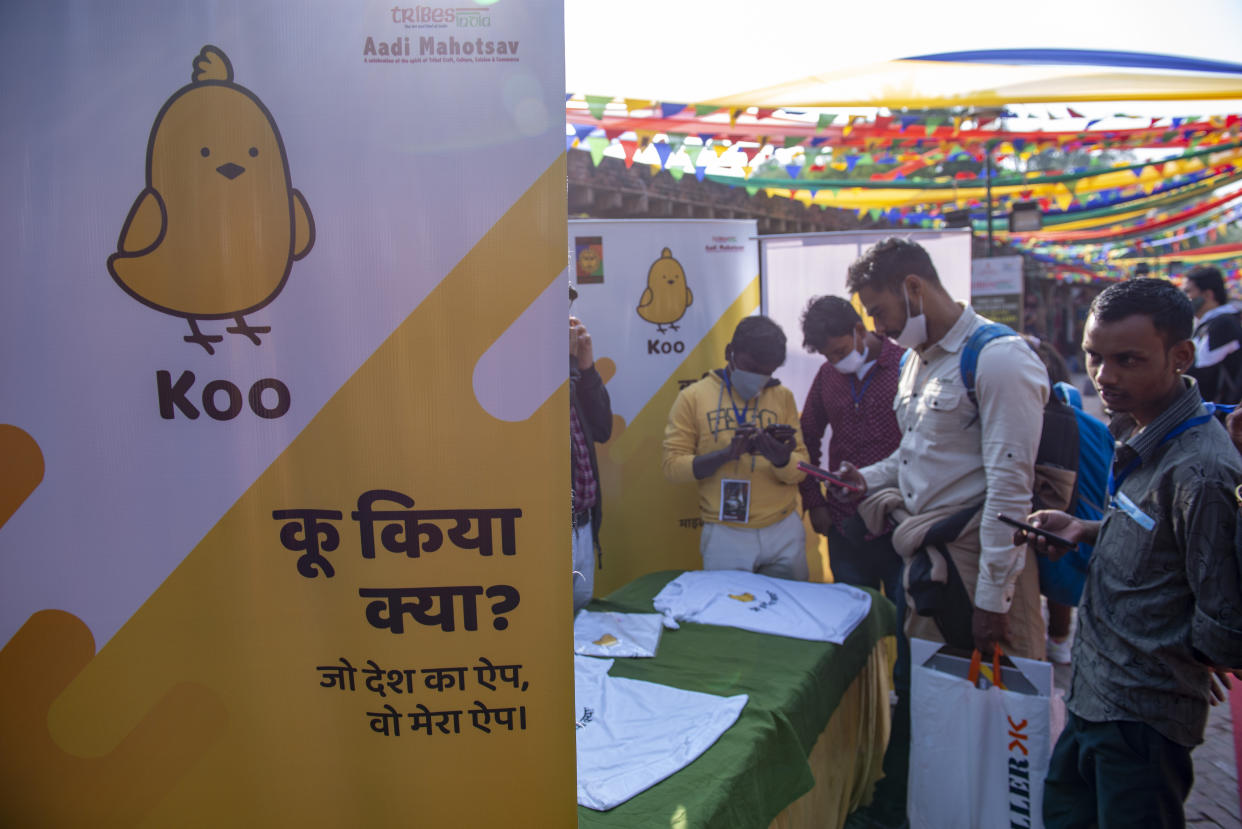Koo, India's Twitter alternative, seeks strategic partner amid funding crunch

Koo, India's alternative to Twitter, is looking to find a strategic partner with a "distribution strength" as it enters its "next phase," according to its co-founder, amid a funding crunch at the startup, which is backed by Accel and Tiger Global.
Koo co-founder Mayank Bidawatka wrote in a LinkedIn post Friday that the startup -- which has raised over $50 million to date, according to venture insight platform The Kredible -- had planned to continue focusing on its scale, but the dwindling market conditions forced it to "switch gears [...] to a revenue generating engine."
"From growing rapidly to cutting down on growth and proving unit economics, within 6 months of revenue experimentation, we took a 180 degree turn and proved that this is a real business," he wrote.
The social network is betting on the idea that its approach of supporting multiple local languages will help the eponymous app resonate broadly with the larger masses. The problem, of course, is that all of these people are already using Facebook, WhatsApp and YouTube, the global platforms that support Indian languages, too.
Koo -- which has been attempting to put together a new funding round for at least three quarters, according to two people familiar with the matter -- needs either funding or a strategic partnership for its "next phase," he wrote.
"With the current reality of a slow investor market, the best way forward is to partner with someone who has the distribution strength to give Koo a massive user impetus and help it grow."
Bidawatka's post follows earlier local media reports that said Koo was struggling with cash and was seeking a strategic sale. The firm has approached several players including Microsoft, The Arc reported.
"With just 6 months more on our trajectory, we would have beaten Twitter in India," he wrote, asserting that even Meta, the "Godfather of social platforms," is taking time to build basic features in the Threads app.
Koo, which operates in markets including India and Brazil, has fewer than 1 million monthly active users on its app, according to mobile intelligence firm Sensor Tower, whose data an industry executive shared with TechCrunch.

 Yahoo Lifestyle
Yahoo Lifestyle 